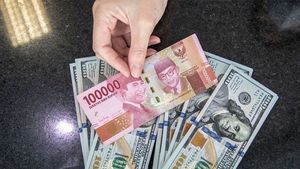JAKARTA - Russia's decision to ban exports of gasoline and diesel could exacerbate concerns about supply, triggering an increase in diesel prices at the global level.
Russia is one of the largest oil producers exporting nearly 900 thousand barrels of diesel per day and 100 thousand barrels of gasoline per day.
Last year, the country's total solar exports reached 35 million tons and 4.8 million tons of gasoline.
Both fuels contributed most of Russia's transportation and were widely used in the agricultural and industrial sectors.
Although Russia exports not as much gasoline and diesel as exports of crude oil, export embargoes before winter and concerns over supply chains make the market even more nervous.
According to ANTARA from Anadolu, Friday, September 22, Brent oil was trading at $92.7 a barrel on Thursday before Russia restricted gasoline and diesel exports to balance the domestic market.
After Russia banned exports of gasoline and diesel, Brent sales rose 1.9 percent to 94.5 US dollars (Rp1.45 million) per barrel.
However, in Russia's domestic market, the decision caused gasoline and diesel prices to fall by 5 percent.
Given the fact that almost all of Russia's major oil companies, including Gazprom Neft, Tatneft, and Surgutinephegaz, export diesel and gasoline, this provisional decision has a negative impact on these companies.
Production of European and Asian refineries is no longer adequate
In its report last September, the International Energy Agency (IEA) stated that various oil refineries had difficulty meeting the increasing demand, especially for distillations.
Oil supply restrictions that are being implemented by OPEC+, international sanctions for Russian oil, and low production of European and Asian oil refineries that are still well below previous years, are touted as a factor that raises fears of inadequate supply.
SEE ALSO:
In addition, the supply gap in the world market is expected to widen, especially before winter, as a result of Russia's decision, which temporarily bans exports.
Russia is a solar net exporter. This means that the country produces more gasoline and diesel than consumes it. However, these obstacles are expected to cause a surplus in Russia's domestic market, so the decisions taken are temporary.
Russian Deputy Energy Minister Pavel Sorokin said that although the current export ban is not limited, it is expected to have a direct impact on the market.
Sorokin argues that by taking this step, Russia can meet the needs of farmers, who are one of the largest consumers of gasoline and diesel in the country.
The English, Chinese, Japanese, Arabic, and French versions are automatically generated by the AI. So there may still be inaccuracies in translating, please always see Indonesian as our main language. (system supported by DigitalSiber.id)


















